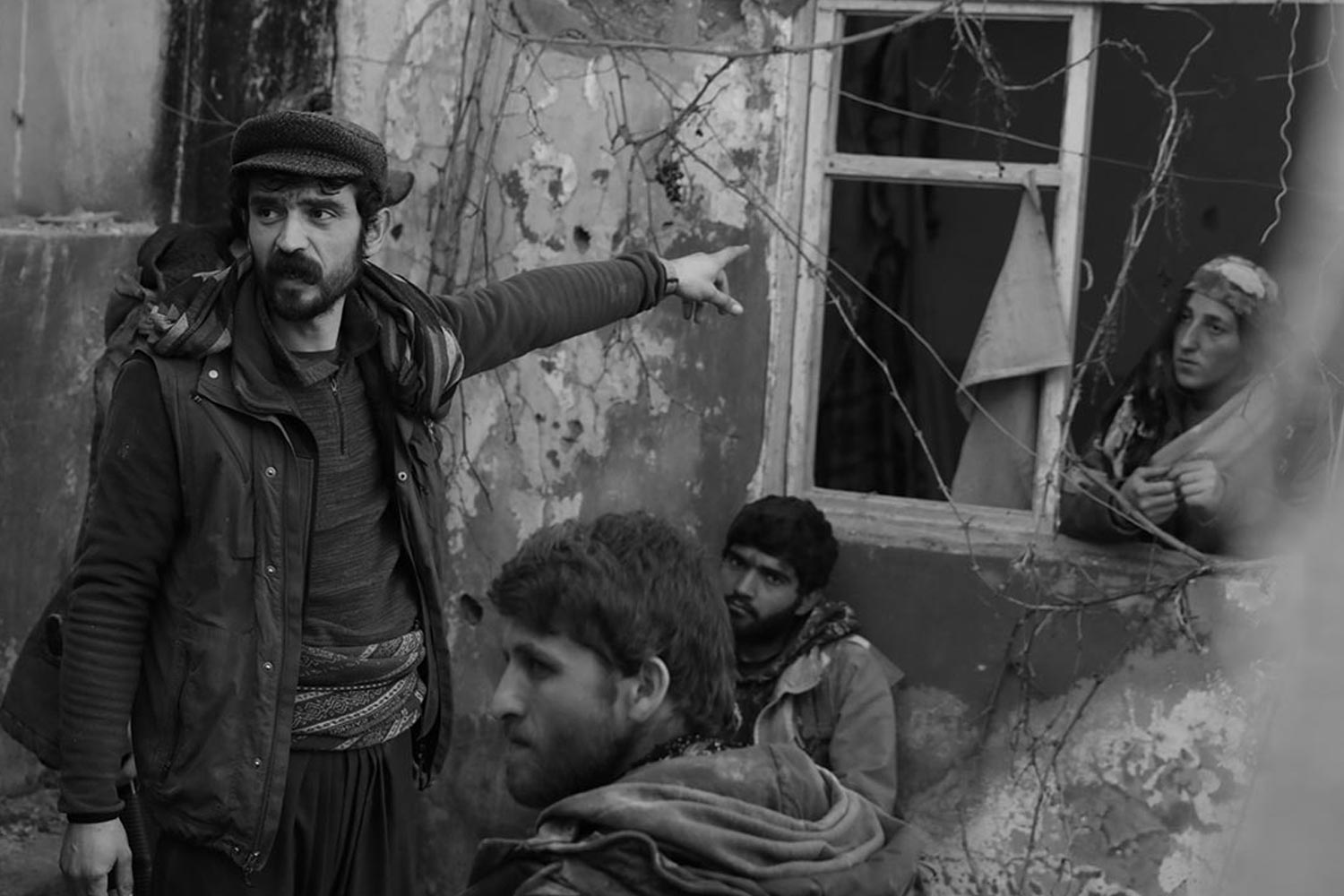Ji Bo Azadiye (The End will be Spectacular) is directed by Ersin Çelik. The film has won the Palmera de Bronze at the Mostra de Valencia. Orsola Casagrande interviewed the director in Bilbao.
The film tells the story of the siege of Sur, the historic neighbourhood of Diyarbakir (Amed in Kurdish) in 2015 and the resistance led by a group of young people to the attack by the Turkish army.
“The winter of 2015-2016 was difficult for the Kurds. – says director Ersin Çelik – The elections of June 7, 2015 saw a great success for the HDP. It was a time in which the possible solution of the Kurdish question by democratic means was discussed. There was hope. But everything changed dramatically. On July 20, the Suruç massacre, on July 22, the new agreement on the sale of arms from the United States to Turkey, the mass arrests of HDP members and intense military operations in Kurdistan begun.”
At that time, some MIT (Turkish intelligence services) documents were leaked, including one that said that in 2014 an operation called “Destruction Plan” was prepared at the same time that negotiations with Abdullah Ocalan (the leader of the PKK held in isolation in the maximum security prison island of Imrali since 15 February 1999) were continuing.
“That winter of 2015, – said Çelik – the government besieged several cities with the aim of destroying them while the people rebelled and made it very clear that they were going to resist.”
Çelik was then working as a journalist and recalls the testimonies collected in the besieged cities, both in Cizre and in Sur (Diyarbakir). The End will be Spectacular was born from reading the newspapers of the resisters. “Çiyager, – says Celik – the Sur resistance commander tells everyone who managed to go out of the besieged neighbourhood, to tell the story of the resistance. Some members of the YPS (People’s Defense Civilian Units) survived the siege, and we were able to talk extensively with them. The state wanted to put an end to Sur, to erase the history of this thousand-year-old neighbourhood, which was almost completely destroyed. The questions we asked ourselves when writing the script were essentially two: What strength, what determination led 50-60 young people, most of whom had never taken a weapon in their hands, to resist a highly trained military force during a siege of more than 100 days? And the second question was: What happened outside? Why so much hate? Of course, it is difficult to understand the answer to these questions only by analysing what happened in Sur. Rather we should look at the last 100 years of Kurdish history.” Writing the script, says Çelik, “wasn’t easy. It made it easier the fact that we developed it in a collective way.”
The film was shot in Kobanê, the city that defeated the Islamic State in 2015, at a time when the world seemed resigned to living in a permanent state of terror. The people of Kobanê, organized in self-defense militias, fought in defense of the model of coexistence advocated by Abdullah Ocalan and, finally, in defense of freedom, which means the right to decide how to live and organize. “Shooting in Kobanê – says Çelik – had many meanings and reasons. The stories of Kobanê and Sur are very similar. The defeated forces in Kobanê wanted to attack Sur. The objective was the same, to destroy a model of life. Those who resisted were the same, they were people with the same determination, will and conscience.”
Çelik makes another, more intimate consideration: “Space influences the formation of individuals, both in real life and in the art of cinema, and people similarly influence space. Those who resisted in Sur gave those stones a new meaning and a different spirit. The city of Kobanê, its streets, its destroyed houses and the traces of the resistance have that same spirit. That environment or this identity of Kobanê, was present throughout the filming. This really helped the actors get into their roles.”
Actors who in many cases are Sur’s real survivors playing themselves. A challenge fully overcome, which makes the ‘acting’, individual and collective, the other great achievement of this film. “We were looking – says Celik –for those closest to the emotions of the young people who resisted in Sur. Working with non-professional actors is always difficult. But I think it would have been much more difficult to work with professionals. Two militiamen who participated in the Sur resistance, Khaki and Korsan Şervan, played themselves in the film. Most of the other actors were also young people who had participated in the war against ISIS or have grown up in the war.”
Rûbar Şervan
One of the actors hasl not been able to see the success of Ji Bo Azadiye. Rûbar Şervan (Cihan Sever) was from Van, one of the coldest places in Kurdistan when it comes to weather. A purpose and a feeling had taken Rûbar from the coldest and most mountainous part of his country to the warmest and semi-desert region. Rûbar Şervan had come to Kobanê to join the resistance against ISIS attacks in 2014-2015. He participates in the war against ISIS in Kobanê. “By the time we met – says Ersin Çelik – he had already fought against ISIS in Rojava and other areas in northern Syria. Several times he had been injured. In October 2017, we met with Rûbar in Kobanê, while preparations to shoot the film continued.”
Çelik remembers: “When I saw Rûbar for the first time, I said to myself ‘that’s it’. And my impression did not change after 3 months of working together. It would play Ciyager, one of the main roles. Çiyager was the commander of the 100-day resistance against the police and army siege in Sur, between December 2015 and March 2016.”
Rûbar had a smiling face and a cheerful and light heart as a feather. “He was very humble and positive in the face of difficulties, – says Çelik – even his walk was appropriate. He had all the characteristics of a revolutionary commander. He was like the Çiyager that the film would portray. Of course, Rûbar at first he did not volunteer for the film. What is that for? -he said- as if it were none of his business. That’s how he saw it. He didn’t have any acting experience, neither in theater nor in film, so he had to trust himself and us.”
Çelik remembers that Rûbar always questioned himself. ‘I wonder if I can represent Ciyager,’ he used to say, ‘will I be able to play this role? what if I can’t?’ Our film was about a process that is still going on. Everything is still very much alive, very fresh. Rûbar also felt that this was not just a movie. He knew that this role would also affect his life.”
Çelik said goodbye to Rûbar in May 2018. “We last saw each other in August 2018, I made him watch the first version of the film. After that I lost contact. I did not receive any information until we learned that he had fallen as a martyr on October 25, 2019. He lost his life in the clashes in Heftanin, South Kurdistan.”
The webpage of the movie is here







